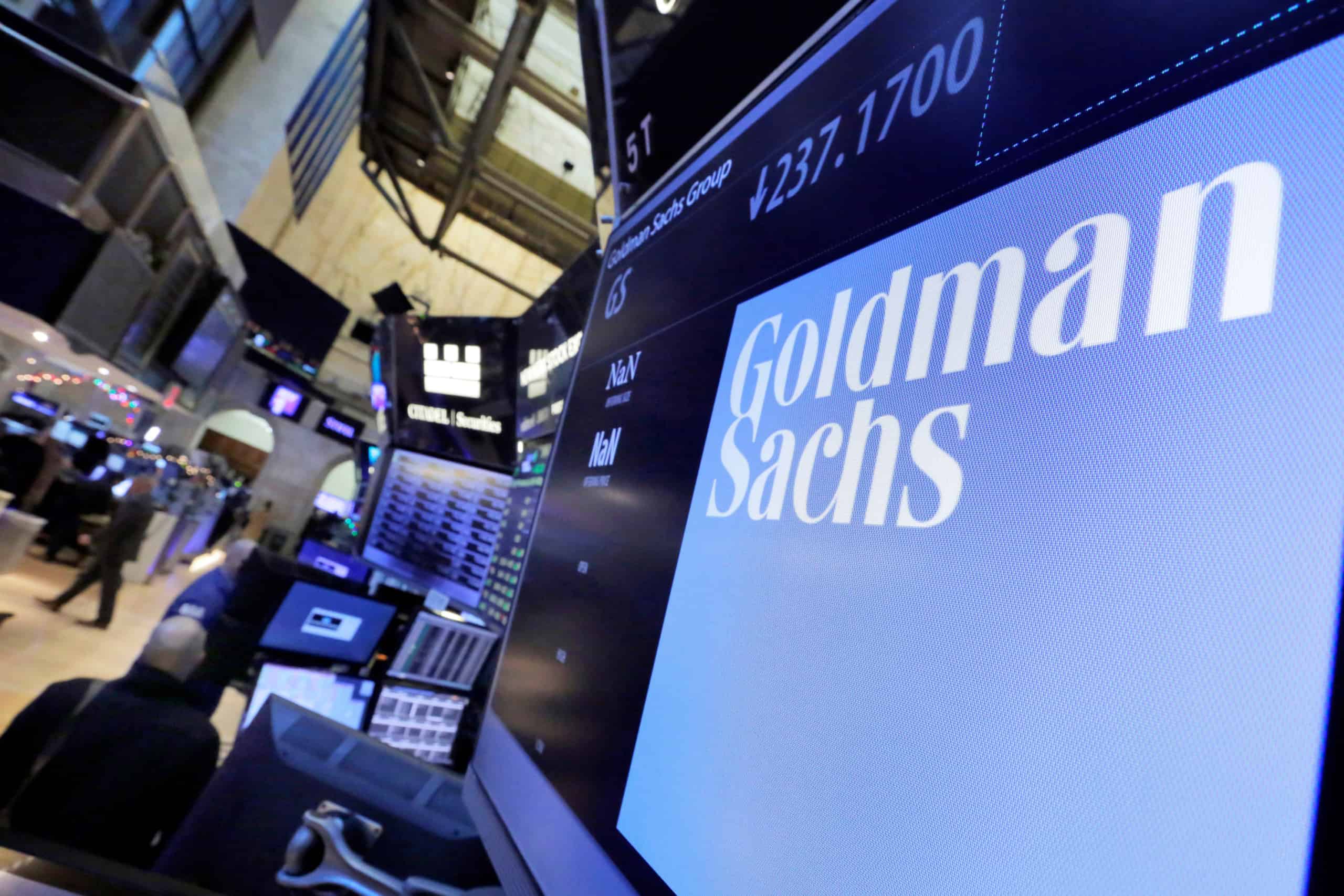
Credit: Richard Drew/AP Photo
In December 2004, Goldman Sachs struck an unusual deal to bolster its presence in China. The Wall Street investment bank agreed to “donate” $62 million to pay off the debt of a failed state-owned brokerage house.1The money went into a fund that was supposed to compensate investors whose savings had been embezzled by the directors of Hainan Securities, a state-backed firm. In exchange, Beijing granted Goldman a license to operate a joint venture brokerage firm in China.
That new venture, Goldman Sachs Gaohua Securities, was supposed to help the Wall Street firm win privileged access to China’s fast-growing economy and its highly regulated financial services market, which had largely been closed to foreign firms.
The business was only a modest success.
But now, after more than a decade of aggressive lobbying by Wall Street firms and the U.S. government, China has begun to grant foreign firms greater access to its financial markets, allowing global institutions like Goldman to operate more freely, and to buy and sell stocks, bonds and other investment products for wealthy Chinese investors.
There is hope on Wall Street that this time things will be different. And so even amid growing tensions between the U.S. and China, the biggest names in American finance are expanding their presence in the country. Black Rock is selling mutual funds; Vanguard has moved its Asian headquarters to Shanghai; JP Morgan is buying up office space in Shanghai’s tallest skyscraper; and Goldman Sachs is preparing to take full control of the joint venture it formed 16 years ago.
“Without a doubt, this opening of the financial sector is unprecedented,” says Fraser Howie, a Singapore-based financial analyst and co-author, with Carl E. Walter, of Privatizing China: The Stock Markets and their Role in Corporate Reform. “China was this large, growing market that foreign firms couldn’t fully access. Now, the access problem has been solved.”
There are risks for sure, analysts say, but for now some of the world’s biggest institutions are scrambling to take advantage of the long awaited opening. While foreign financial services firms have operated in China for decades, they have largely been restricted to advising on outbound deals, such as initial public offerings (IPOs) in New York or Hong Kong, buying stakes in Chinese firms or helping Chinese companies acquire overseas assets.
What they have eagerly sought is access to the country’s increasingly wealthy investors, and the more than 4,000 listed companies that trade in China, on the country’s major stock exchanges.2While foreign banks could participate in onshore IPOs, their own stock related businesses were limited, analysts say. They also want to build an onshore wealth management business.
This is a gesture by the Chinese government to show the outside world that it is open for business, especially in the financial services sector.
Chen Zhiwu, a professor at the University of Hong Kong
China is responding, analysts say, to longstanding pressure to open a sector that foreign governments contend has been unfairly restricted, evidence that China has failed to live up to promises it made when it entered the World Trade Organization in 2001.
“This is a gesture by the Chinese government to show the outside world that it is open for business, especially in the financial services sector,” says Chen Zhiwu, an authority on China’s financial system and director of the Asia Global Institute at the University of Hong Kong.
There are other reasons as well for the liberalization, analysts say. With China’s current account surpluses expected to dwindle, Beijing is keen to attract huge flows of foreign capital to shore up the country’s finances and bolster the prospects of its home-grown firms, particularly in the field of high technology.
And yet the market opening is playing out against an ugly backdrop. The Trump administration has blamed China for the global pandemic, and unleashed economic sanctions against some of the country’s biggest firms, including Huawei. The U.S. Congress has threatened to delist Chinese firms from American stock exchanges for failing to adhere to U.S. accounting standards. And in November, the White House issued an executive order banning Americans, including the country’s big mutual funds, from investing in 35 companies that the U.S. claims are linked to the Chinese military.
On Friday, the New York Stock Exchange announced its intention to delist the three state-run telecom giants, China Telecom, China Mobile and China Unicom, in order to comply with the executive order.
If that were not enough, the U.S. is considering more punitive action against China for its assault on freedoms in Hong Kong and the nation’s use of forced labor, detention centers and internment camps in the Muslim-dominated western region of Xinjiang. China, for its part, has responded with claims that the U.S. is blocking the country’s rise as a competitor, and vowed to retaliate against U.S. firms with its own economic sanctions. On Saturday, for instance, the Associated Press reported that China is preparing countermeasures against the delisting of the big three state-owned telecom companies from the New York Stock Exchange.
And yet none of that seems to have deterred global financial firms from expanding in China. Wall Street firms, in particular, seem to be making a long term bet that getting in now, even during heightened tensions, could give them an advantage in what will likely become the world’s largest economy by 2028. China is, after all, home of some of the world’s hottest startups, and has just completed another record year of IPOs.
It’s not just investment banks that are giddy about the potential riches that may materialize. MSCI, the global index provider, now includes companies listed in China’s domestic stock market in its global indices. And in 2019, Standard & Poor’s, the world’s biggest ratings agency, won a license to operate its ratings services in China.
Huge dollops of capital are already washing ashore. More than $200 billion of foreign funds has been invested in Chinese stocks and bonds during the past year, according to a Bloomberg News report. And the investable wealth of Chinese clients is expected to grow from $24 trillion in 2018 to $41 trillion in 2023, says a study released by the consultancy Oliver Wyman.
Few global firms are more keen to get into China than Goldman Sachs. The firm made its first big push into the country in the 1990s, helping Beijing restructure and list its state-owned enterprises on the New York and Hong Kong stock exchanges, raising billions of dollars for the state. Since then, the firm has brought some of its leading bankers to work in China, including Hsueh-ming Wang, Xu Ziwang, John L. Thornton, Fred Hu, Mark Machin, Richard Ong, Cai Jin-yong and J. Michael Evans.
Still, most of Goldman’s profits during the past two decades was derived from outbound IPOs and acquisitions, as well as investments in huge state run firms, like the banking giant ICBC, or private firms such as Ping An Insurance, Taikang Life and the giant pork processor Shuanghui (now called the WH Group).
What Goldman was unable to do was build a significant onshore securities business. While its onshore joint venture, Goldman Gaohua, reported $80 million in revenue in 2019, that figure is dwarfed by the size of its Chinese state rivals, like Citic Securities and Guotai Junan, which reported revenues of between $8.7 billion and $5.9 billion respectively.
To understand Goldman’s ambitions in China, it’s instructive to look back to 2004, when the firm went to extraordinary lengths to build a presence in Beijing. At the time, Goldman didn’t just pay off a $62 million debt for Hainan Securities in exchange for the rights to a share of its brokerage license, the Wall Street firm also agreed to lend $100 million to Fang Fenglei, a well-connected Chinese investment banker. The loan allowed Fang to set up the joint venture, Goldman Gaohua, and to own a big stake in it.3The loan was not a personal loan but capital to set up Beijing Gaohua, which Fang did with a group of other Chinese partners.

Credit: Imaginechina via AP Images
The deal was struck by Goldman’s then-chief executive, Henry M. Paulson Jr., and Wang Qishan, a powerful, rising star in the Communist Party, at the time the Mayor of Beijing and now the country’s vice president. Wang and Fang Fenglei were close friends and had worked together at the China International Capital Corporation, or CICC.4 CICC was a foreign joint venture investment bank established by China Construction Bank and Morgan Stanley. A year later, in 2005, Goldman hired Wang’s relative, Hong Ning, who made partner five years later. (Hong Ning ran Goldman’s investment banking business in China but left the firm about six months ago.)
The JV was approved at the highest levels of government, including China’s cabinet, the State Council.
In all, Goldman put down $190 million to get its JV going, a price analysts say global firms were willing to pay at the time to break into China’s highly protected financial markets. And with that, Goldman became the first foreign investment bank to hold a stake in a Chinese securities firm, albeit a minority stake at 33 percent. The other 67 percent was held by Fang and a group of Chinese partners, including Legend Holdings, the parent of the computer maker Lenovo. The plan was for Goldman to run the investment banking business, with Beijing Gaohua managing the other businesses, including the brokerage house.
Fang set up the new joint venture, but didn’t stay long. He left Goldman Gaohua in 2007 to start a private equity firm, Hopu Investments, and thereafter, the JV — which Goldman had operational control over, despite its minority stake — managed steady but modest growth in a market dominated by state-backed brokerages like Citic, Galaxy, Guosen and Haitong Securities.
That is where things stood until major policy changes were announced in China after Donald J. Trump entered the White House. With the Trump administration preparing to confront China over trade, analysts say Beijing began to court Wall Street by pledging to change some of the rules that had irked the Americans, namely restrictions on access to China’s financial services markets — one of the most heavily protected parts of the economy.
The approvals gained speed as Beijing and Washington battled over trade. In 2018, for instance, foreign banks were allowed to own a majority of their business in China. Last March, Goldman won approval to take a 51 percent stake in its brokerage business. Then in early December 2020, the company announced it was preparing to take full ownership of Goldman Gaohua. The respected Chinese business magazine Caixin estimates that Goldman could pay as much as $180 million to buyout its local partners.

Data: WireScreen
Taking full control of the firm could allow Goldman to build a bigger local business by expanding its offerings. Experts, though, say, how fast it grows could depend on whether the government erects or knocks down informal barriers.
“If Goldman has a little bit of freedom to conduct their own business, they should be able to make a lot of money, which will be at the expense of state-owned companies,” says Zhaohui Chen, an associate professor at the McIntire School of Commerce at the University of Virginia.
To complete the deal, Goldman plans to buy out a handful of local insiders who have held stakes along with Fang Fenglei, including Zha Xiangyang, a former deputy chief executive of the joint venture, and Zhang Xing, who also served as chief executive at Gaohua, and other Chinese partners, including Legend. The initial $100 million loan, which helped start the JV, was paid back recently, according to Goldman.
In a statement on December 8, Goldman’s top executives said the deal “represents a significant commitment to and investment in China” and that the new franchise would be renamed Goldman Sachs (China) Securities.
Edward Naylor, a Hong Kong-based spokesman for Goldman, says the firm plans to expand its footprint in China and dramatically increase the size of its workforce, by hiring more bankers and research analysts in Beijing and Shanghai. The firm will also apply for licenses to venture into new businesses, like asset management, which could boost revenue.
Analysts say Goldman’s deal, and those by other Wall Street firms, won’t fundamentally alter China’s financial sector, but increased competition and more exposure to international competition could accelerate China’s financial reforms.
Analysts caution, though, that Wall Street’s newfound access comes with significant risks. Under Xi Jinping, there have been severe crackdowns on corruption, stricter rules around national security and cyber security, efforts by the Communist Party to push for more state control over the economy, and even an ongoing campaign to rein in private entrepreneurs. And recently, Beijing stunned the global markets by unexpectedly canceling what was slated to be the biggest IPO in history, of Ant Financial.
“It’s China. Have you read Chinese history?” asks Howie, the Singapore based financial analyst. “Everything could go wrong!”
There is also the looming threat of tougher U.S. economic sanctions against China. Also, efforts by members of the U.S. Congress to delist Chinese firms from the U.S. markets may hint at some type of financial decoupling that could broaden to include measures aimed at American investments into China.
Derek Scissors, a resident scholar at the American Enterprise Institute in Washington, says Wall Street’s embrace of China at a time of rising tensions is also likely to complicate American policy decision-making, putting Wall Street firms in the position of lobbying for Beijing. “There’s money to be made there; there’s no argument about that. But the gain for Wall Street is at odds with broader American interests.”
Wall Street, it appears, is betting otherwise.

Eli Binder is a New York-based staff writer for The Wire. He previously worked at The Wall Street Journal, in Hong Kong and Singapore, as an Overseas Press Club Foundation fellow. @ebinder21



